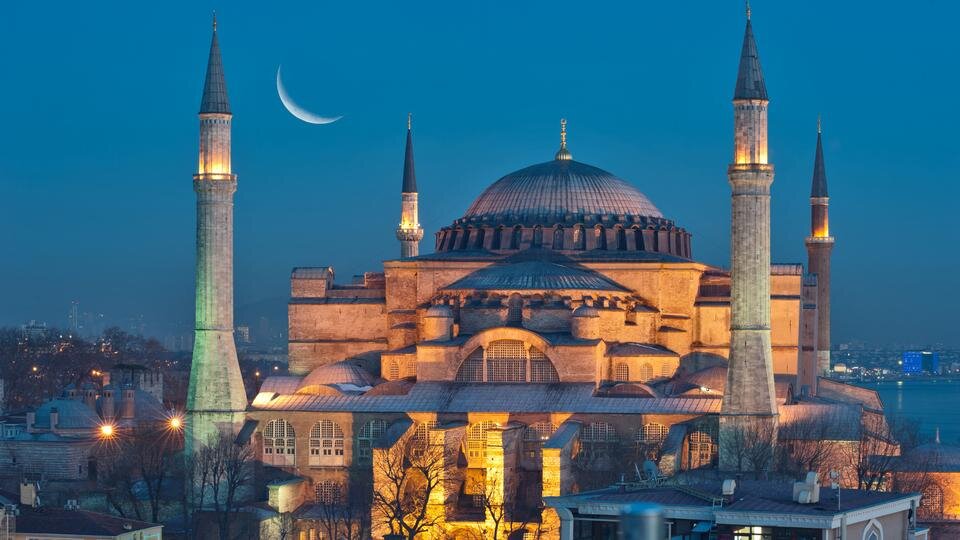International Relations
Hagia Sophia Museum: Turkey
- 04 Jul 2020
- 5 min read
Why in News
Recently, the government of Turkey has decided to convert Istanbul’s iconic Hagia Sophia Museum into a mosque.
Key Points
- Turkey’s Stand:
- Superiority of the Islamic World: For the President Recep Tayyip Erdoğan of Justice and Development Party (AKP), and his supporters who tend to have nationalist-Islamist sympathies, it symbolises the conquest of Christian Constantinople by the Ottomans, and the superiority of the Islamic world.
- Political Symbol: Hagia Sophia is not only the symbol of Turkey’s most popular tourist attraction but also acts as a political symbol.
- The plan of conversion is also an attempt to gain political support as AKP has lost many municipal elections.
- USA Recognition of Jerusalem: It also coincided with USA recognition of Jerusalem as the capital of Israel.
- Jerusalem which has a significant population of Arab-muslims who are becoming more and more hostile because of the USA's recent stand on Israel-Palestine issue. This step of conversion of mosque would gain support of Arab countries for Turkey.
- Less Opposition: It has also been believed that the government does not need the courts to decide on the fate of the Hagia Sophia as legal rulings will add legitimacy to his proposals.
- Also, there has been less opposition within Turkey because religious minorities do not wish to be involved in such polarising subjects
- Domestic Matter: Turkey considers the status of the Hagia Sophia as a domestic matter and interference of international players is not required as Greece objected to the conversion of the museum into a mosque.
- Greece’s Stand:
- Diplomatic Tension: There have been diplomatic tensions between Turkey and Greece over many issues related to Hagia Sophia.
- According to Greece, the museum which has been designated a world cultural heritage is currently being used to promote other purposes.
- Earlier, Greece objected to the reading of passages from the Quran inside the Hagia Sophia on the 567th anniversary of the Ottoman invasion of the former Byzantine capital.
- Diplomatic Tension: There have been diplomatic tensions between Turkey and Greece over many issues related to Hagia Sophia.
- Role of UNESCO: Greece had appealed to the United Nations Educational, Scientific and Cultural Organization (UNESCO), objecting to Turkey’s moves on grounds that the conversion is a violation of UNESCO’s ‘Convention Concerning the Protection of the World Cultural and Natural Heritage.
- UNESCO too has objected to Turkey's plans.
- USA’s Stand: It has expressed that by the conversion the Hagia Sophia would not be able to serve humanity as a bridge between those of differing faith and cultures.
Background
- Hagia Sophia is the former Greek Orthodox Christian patriarchal cathedral, later an Ottoman imperial mosque and now a museum located in Istanbul, Turkey.
- Built in AD 537 (Byzantine architecture), during the reign of Justinian 1, the Eastern Roman emperor, it is famous for its large dome.
- In 1453, when Constantinople (capital city of the Roman Empire) fell to Sultan Mehmet II’s Ottoman forces, the Hagia Sophia was turned into a mosque.
- For a long time, the Hagia Sophia was Istanbul’s most important mosque.
- In 1934, Mustafa Kemal Ataturk, the founder of the Republic of Turkey, converted the mosque into a museum in an attempt to make the country more secular.
- The 1,500-year-old structure has been listed as a UNESCO'S World Heritage site.
- A World Heritage Site is a place that is listed by UNESCO as of special cultural or physical significance.





